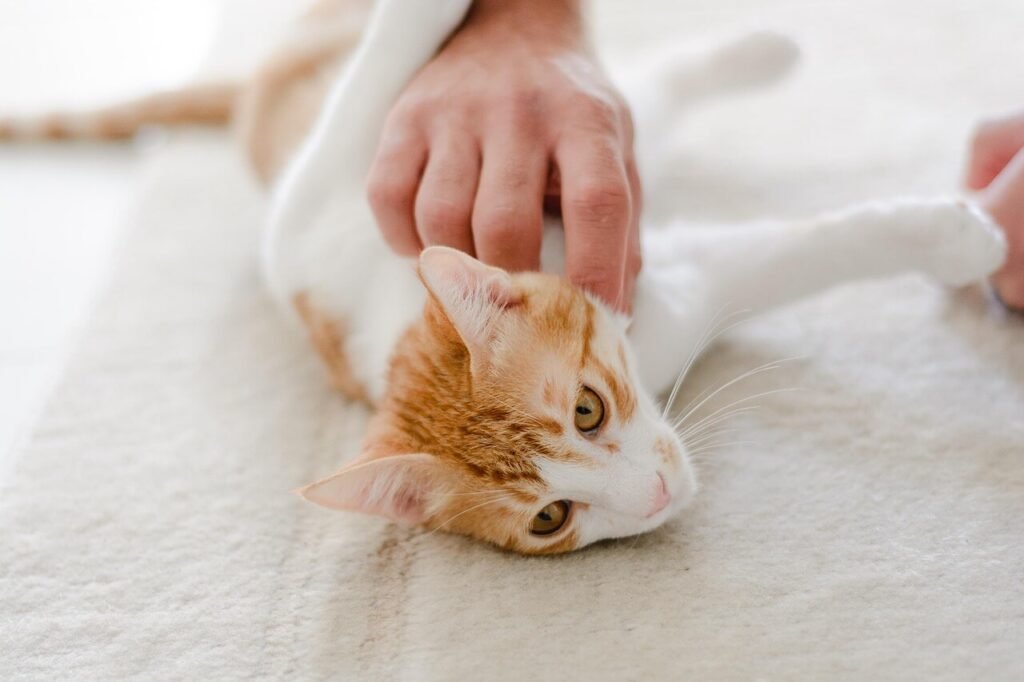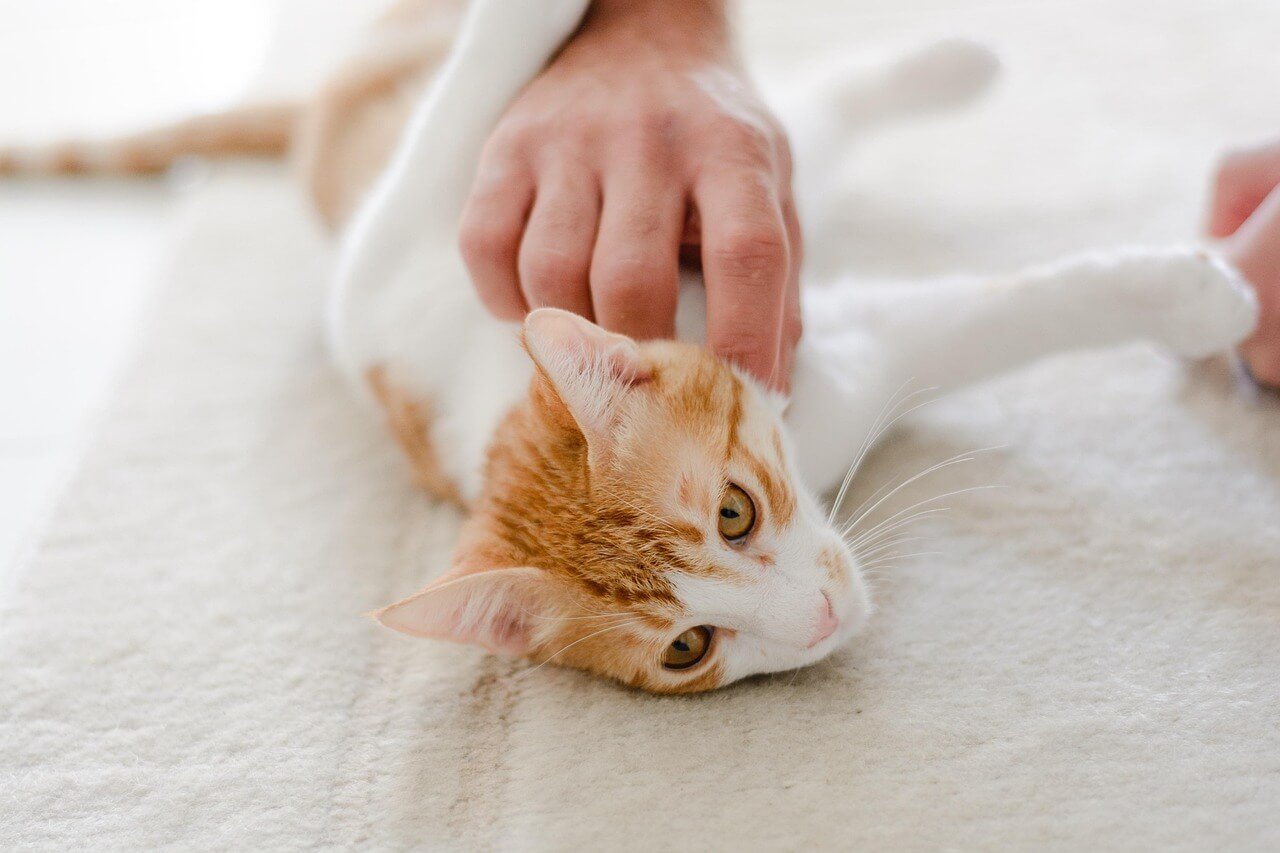Why Is My Cat Not Feeding Her Kittens? Understanding the Behavior
Welcoming a litter of kittens into your home is an exciting yet challenging experience, especially when you notice your cat isn’t feeding her kittens as expected. This behavior can be concerning and leave you wondering what might be wrong. While most mother cats instinctively care for their young, there are instances where they may neglect or refuse to feed them. Various factors—ranging from health issues to environmental stressors—can contribute to this behavior.
In this blog post, we’ll explore the reasons why your cat may not be feeding her kittens, how to address the situation, and steps you can take to ensure the survival and well-being of the litter. Let’s dive in and uncover what you need to know to support your feline family.
Possible Reasons Why Your Cat Isn’t Feeding Her Kittens
If your cat isn’t feeding her kittens, it’s essential to identify the underlying cause. Here are some common reasons that might explain this behavior:
Health Issues
The mother cat may be unwell, weak, or recovering from complications during birth, leaving her unable to care for her kittens properly.Inexperience
First-time mothers may lack maternal instincts or feel overwhelmed by the responsibilities of caring for their litter.Stress or Anxiety
Environmental changes, loud noises, or unfamiliar surroundings can make the mother cat too stressed to focus on feeding her kittens.Lack of Milk Supply
Some cats may struggle to produce enough milk due to poor nutrition, dehydration, or hormonal imbalances.Rejection of Kittens
Occasionally, a mother cat may reject one or more kittens if she perceives them as unhealthy or unfit for survival.
Understanding these reasons can help you determine whether the issue is temporary or requires immediate intervention. Addressing the root cause is crucial for the kittens’ survival.
Signs That Indicate Something Is Wrong
Recognizing signs of trouble early can help you act quickly to support both the mother cat and her kittens. Here are some red flags to watch for:
Kittens Crying Constantly
Persistent crying from the kittens may indicate they aren’t receiving enough milk or attention from their mother.Mother Avoiding the Nest
If the mother stays away from the nest for extended periods, it could signal disinterest or discomfort.Underweight or Weak Kittens
Kittens that appear underdeveloped or lethargic may not be getting adequate nutrition.Swollen or Painful Mammary Glands
This could indicate mastitis, a painful condition that prevents the mother from nursing effectively.Aggressive Behavior Toward Kittens
Growling, hissing, or physically harming the kittens is a sign of rejection or stress.
These signs should prompt immediate action. Whether it’s consulting a veterinarian or stepping in to hand-feed the kittens, quick intervention can make all the difference.
Check this guide 👉Creating the Perfect Cat Birthing Box: Best 7 Health Tips!
Check this guide 👉How Long Do Cats Bleed After Giving Birth? Best 7 Tips!

Reasons for Neglecting Kittens | What You Can Do to Help |
|---|---|
Health issues | Consult a vet for diagnosis and treatment |
Inexperience | Provide guidance and supervise interactions |
Stress or anxiety | Create a calm, quiet environment for the family |
Lack of milk supply | Supplement with kitten formula if necessary |
Rejection of kittens | Separate rejected kittens and provide care |
How to Support a Mother Cat and Her Kittens
If your cat isn’t feeding her kittens, there are several ways you can step in to ensure the litter stays healthy. Here are some practical tips:
Provide a Safe Space
Set up a quiet, warm, and comfortable area for the mother and kittens to reduce stress and encourage bonding.Offer Nutritious Food and Water
Ensure the mother has access to high-quality food rich in protein and fat, along with fresh water, to support milk production.Supplement Feeding If Needed
Use a kitten milk replacer (not cow’s milk) to feed hungry kittens if the mother isn’t producing enough milk.Monitor Kitten Weight Gain
Weigh the kittens daily to ensure they’re gaining weight, which indicates they’re receiving proper nutrition.Consult a Veterinarian
Seek professional advice if the mother shows signs of illness, pain, or continued neglect toward her kittens.
By taking these steps, you can bridge the gap and give the kittens the best chance at survival while addressing any issues affecting the mother.
Steps to Hand-Raise Kittens If Necessary
In cases where the mother cat is unable or unwilling to care for her kittens, you may need to step in and hand-raise them. Here’s how to do it safely:
Use a Kitten Milk Replacer
Purchase a commercial kitten formula specifically designed for newborns; never use cow’s milk, as it can upset their stomachs.Feed Frequently
Newborn kittens need to be fed every 2–3 hours, including overnight, to mimic their natural feeding schedule.Burp After Feeding
Gently rub the kitten’s back or chest after each feeding session to help release trapped air, just like human babies.Keep Them Warm
Use a heating pad or warm blanket to maintain a cozy temperature, as kittens cannot regulate their body heat effectively.Stimulate Elimination
Gently rub the kitten’s genital area with a damp cloth after feeding to encourage urination and defecation until they learn to do so independently.
Hand-raising kittens requires patience and dedication, but it can save their lives if the mother is unable to care for them. Always seek guidance from a vet if you’re unsure about any aspect of their care.
Common Mistakes to Avoid When Hand-Raising Kittens
Hand-raising kittens is a delicate process, and even well-meaning caregivers can make mistakes that may harm the kittens. Here are some common pitfalls to avoid:
Using Incorrect Formula
Cow’s milk or homemade formulas lack the nutrients kittens need and can cause diarrhea or malnutrition.Overfeeding or Underfeeding
Feeding too much can lead to bloating, while underfeeding may result in malnourishment and dehydration.Improper Feeding Position
Holding kittens on their backs during feeding can cause them to aspirate milk into their lungs.Neglecting Hygiene
Failing to sterilize bottles or wash your hands can introduce harmful bacteria to the kittens’ sensitive systems.Skipping Stimulation for Elimination
Kittens cannot poop or pee on their own without stimulation, which can lead to severe health issues if overlooked.
Avoiding these mistakes ensures the kittens receive proper care and grow up healthy. Attention to detail is key when hand-raising such fragile newborns.
Fun Facts About Mother Cats and Their Kittens
The bond between a mother cat and her kittens is fascinating and full of interesting behaviors. Here are some fun facts about maternal instincts and kitten care:
Mother Cats Teach Hunting Skills
Even before they’re weaned, mother cats often bring live prey to teach their kittens how to hunt.Kittens Learn Socialization Early
Through play and interaction with their mother and siblings, kittens develop essential social skills.Milk Changes Over Time
A mother cat’s milk transitions from colostrum (rich in antibodies) to mature milk as the kittens grow.Cats Can Adopt Other Species
Some mother cats have been known to nurse and care for other animals, like puppies or squirrels, showcasing their nurturing nature.Maternal Instinct Varies by Cat
Not all cats display strong maternal instincts; some may need human assistance to care for their kittens effectively.
These facts highlight the incredible adaptability and instincts of mother cats. Understanding their behavior can deepen your appreciation for their role in raising their young.
Tips for Strengthening the Bond Between Mother and Kittens
If your cat is struggling to bond with her kittens but hasn’t completely rejected them, there are ways to encourage a stronger connection. Here are some tips:
Create a Calm Environment
Minimize noise, bright lights, and disturbances to help the mother feel secure and focused on her kittens.Limit Human Interaction Initially
Give the mother space to bond with her kittens without frequent handling, especially in the first few days.Encourage Nursing Sessions
Gently guide the kittens toward the mother’s nipples during feeding times to stimulate natural nursing behavior.Provide Comfort Items
Place familiar bedding or items with the mother’s scent in the nesting area to reassure her and the kittens.Monitor Without Interfering
Keep an eye on the situation from a distance to ensure everyone is safe, but avoid unnecessary interventions unless absolutely needed.
By creating a supportive environment, you can help foster a stronger bond between the mother and her kittens. Sometimes, a little patience and encouragement are all it takes to restore harmony.
Frequently Asked Questions About Cats Not Feeding Their Kittens
Why is my cat ignoring her kittens completely?
Ignoring kittens can result from stress, illness, inexperience, or rejection due to perceived weakness in the litter.
Can I force the mother cat to feed her kittens?
Forcing her is not recommended; instead, address underlying issues like stress or health problems and consult a vet.
What should I feed abandoned kittens?
Use a commercial kitten milk replacer, available at pet stores, and avoid cow’s milk, which can cause digestive issues.
How often do newborn kittens need to eat?
Newborn kittens typically need to be fed every 2–3 hours, including during the night.
When should I contact a vet about this issue?
Contact a vet immediately if the mother appears ill, the kittens aren’t gaining weight, or you suspect neglect or rejection.
Supporting Both Mother and Kittens Through Challenges
Discovering that your cat isn’t feeding her kittens can be alarming, but understanding the potential causes and knowing how to respond can make a world of difference. Whether it’s addressing health concerns, reducing stress, or stepping in to hand-raise the kittens, your role as a caregiver is vital. Remember, patience and compassion go a long way in ensuring the well-being of both the mother and her litter. By staying informed and proactive, you can navigate this challenging time and give the kittens the best start in life. With love, care, and determination, even the toughest situations can have happy outcomes for your feline family.
Do Cats Have Taste Buds? Best 7 Expert Tips! – Discover how cats experience flavors and why their taste is so unique.
Do Dogs Have Taste Buds? Best 7 Expert Tips! – Discover how dogs experience taste, their preferences, and what it means for their diet and health.
Can Cats Taste Sweet? Best 7 Expert Tips! – Discover why cats can’t taste sweetness, how it affects their diet, and tips to keep them healthy and happy.
Can Dogs Taste Sweet? Best 7 Expert Tips! – Discover how dogs perceive sweetness, which foods are safe, and tips to manage their sweet cravings responsibly.





